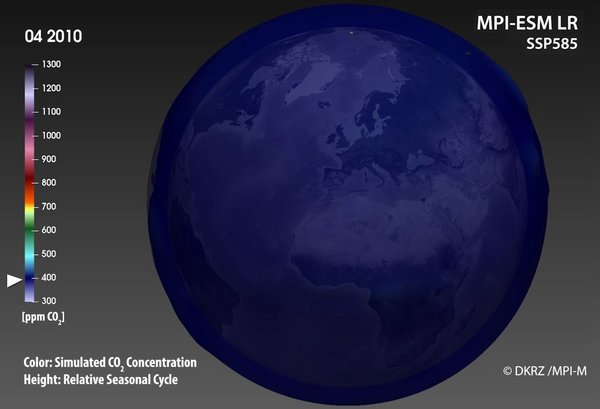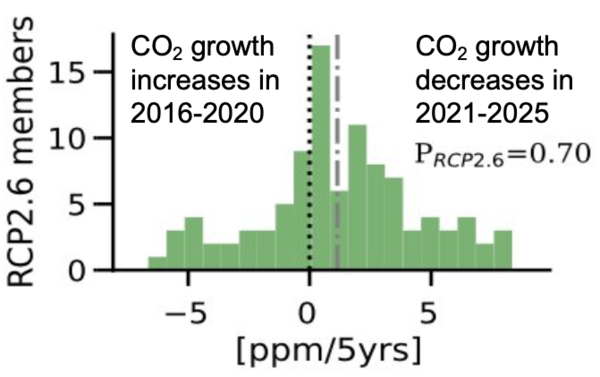![[Translate to English:] [Translate to English:]](/fileadmin/_processed_/c/0/csm_Bourdin_21042021_ae4ba3aa2a.png)
Relative humidity is key in quantifying Earth’s changing climate sensitivity
In a new paper by Stella Bourdin, Lukas Kluft and Bjorn Stevens the authors found a dependence of climate sensitivity on the given distribution of…

Ozone, air chemistry, Earth-system science, environmental modeling — researcher portrait Guy Brasseur
The recently published book “The Ozone Layer, From Discovery to Recovery” is a fascinating reading from the discovery of ozone in the 19th century…
![[Translate to English:] [Translate to English:]](/fileadmin/_processed_/b/a/csm_COVID_Figure_teaser_150371e1e1.jpg)
Climate response to emissions reductions due to COVID-19: Initial results from CovidMIP
In a new publication in Geophysical Research Letters led by Chris D. Jones from the Met Office Hadley Centre, in Exeter, UK, a group of 49 scientists…

Documentation of JSBACH published
Today, JSBACH is the land component of the two Earth System models at the Max Planck Institute for Meteorology (MPI-M), MPI-ESM and ICON-ESM. Work on…

Predicting the global carbon cycle to support decision-making related to carbon management
In a recent study Dr. Tatiana Ilyina, Dr. Hongmei Li, Aaron Spring and Dr. Wolfgang Müller, scientists at the Max Planck Institute for Meteorology,…
![[Translate to English:] [Translate to English:]](/fileadmin/_processed_/c/b/csm_210107_Met_Japan_2021_Urkunden_d914c5a4be.jpg)
Meteorological Society of Japan Publication Award for HD(CP)2 Added Value Paper
A group of scientists at the Max Planck Institute for Meteorology (MPI-M) were recognized for their co-authorship of the paper "The added value of…
![[Translate to English:] [Translate to English:]](/fileadmin/_processed_/5/4/csm_Temporal_mean_MOBO-DIC_200x300__c755c01851.jpg)
New insight into the seasonal carbon dynamics of the global ocean
Researchers at the Max Planck Institute for Meteorology (MPI-M) and colleagues used a machine learning approach to reconstruct a monthly climatology…

CO2 emission reductions only distinctly attributable in the atmosphere after a decade
In a new study Aaron Spring, Dr. Tatiana Ilyina and Prof. Jochem Marotzke, scientists at the Max Planck Institute for Meteorology (MPI-M), show that…
![[Translate to English:] [Translate to English:]](/fileadmin/_processed_/0/e/csm_Wald_Unsplash_49192c44f7.jpg)
Robust detection of deforestation effects on climate takes decades
Globally, about 22 million square kilometres (Mio km2) of forest have been removed between AD 800 and 2015. This deforestation might double until…

Clouds and Climate — Climate Science’s Greatest Challenge
Prof. Bjorn Stevens, director and head of the department “The Atmosphere in the Earth System” at the Max Planck Institute for Meteorology (MPI-M),…
![[Translate to English:] [Translate to English:]](/fileadmin/_processed_/c/9/csm_201005_Abb_Bader_Startseite_a8199dada5.png)
Global temperature modes shed light on the Holocene temperature conundrum
One of the hot topics in climate research is the evolution of the global mean temperature of the last several thousand years, the period from the…
![[Translate to English:] [Translate to English:]](/fileadmin/_processed_/6/6/csm_Teaser_Rueckkopplung_49fd6b53e0.jpg)
Smaller land carbon feedback in the new MPI Earth System Model
In two recent studies, scientists of the Max Planck Institute for Meteorology (MPI-M) analyzed the feedback between CO2 and climate using Earth…
